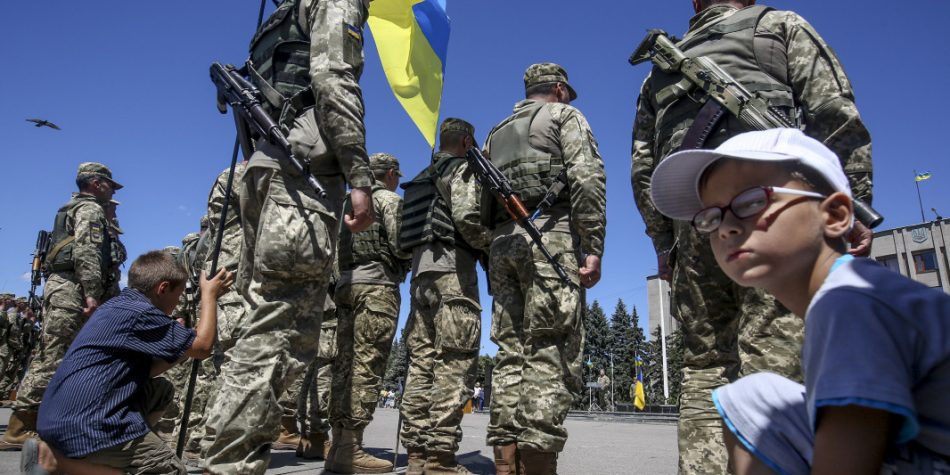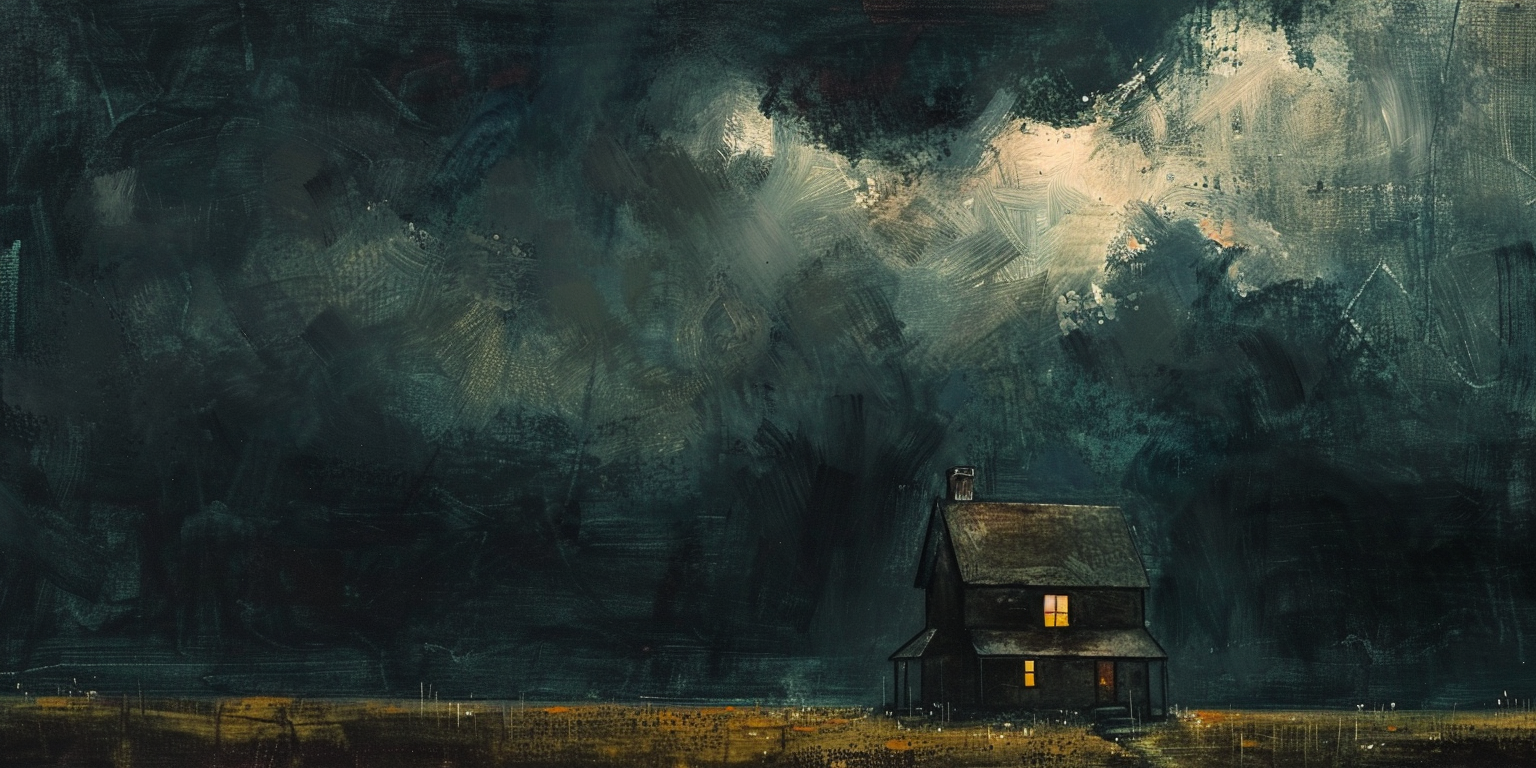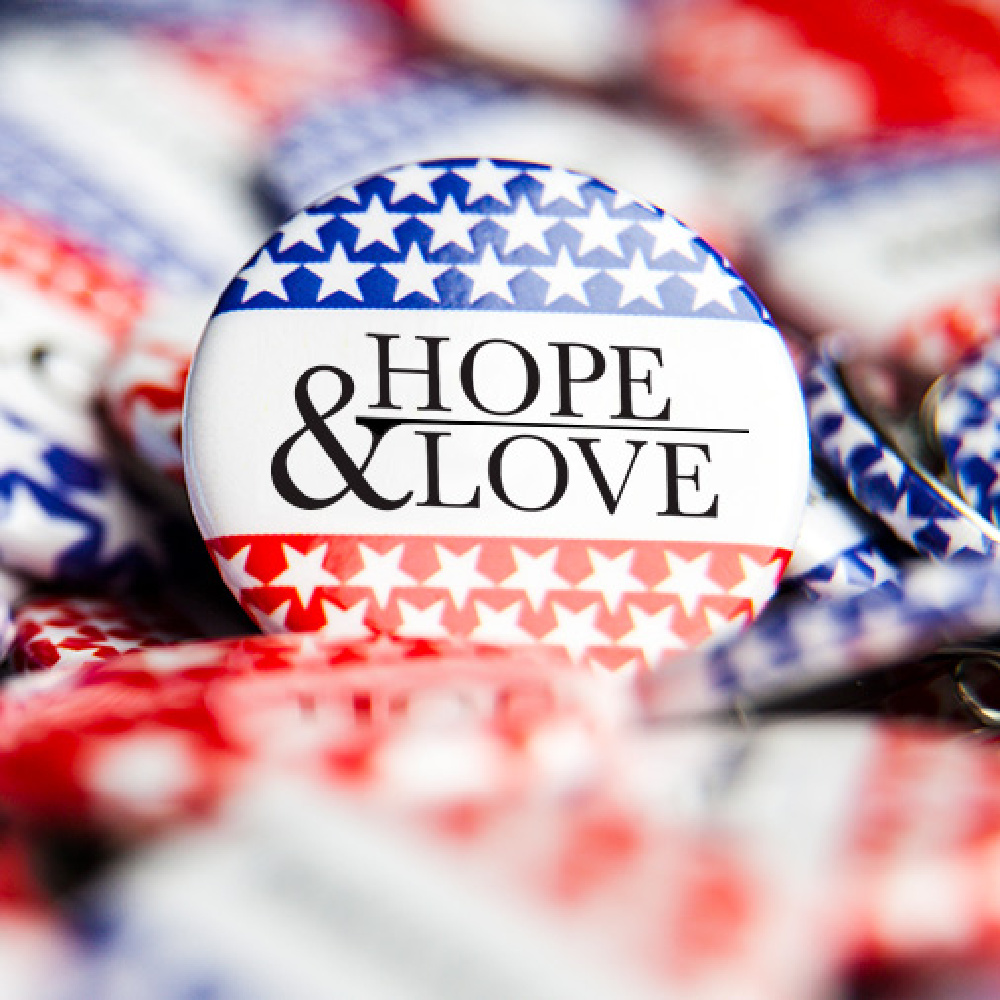One of the most iconic heroes in the Book of Mormon is Captain Moroni, a general in the Nephite army. His stalwart character is described in Alma 48:11–13, which reads, in part, that “Moroni was a strong and mighty man . . . yea, a man that did not delight in bloodshed.”
I’ve always admired Moroni for his courage, diligence, and faith. But it wasn’t until this year that my admiration was transformed into awe and astonishment. For how could a man who was on the front lines of war for years—witnessing the immense suffering of his people and countless barbaric acts of the Lamanites—not delight in the bloodshed of his enemy? How could he maintain his own humanity and not be consumed with hatred for his adversary?
The reason I’ve started asking myself these questions is that, unfortunately, they are extremely relevant. The world is now faced with yet another war—the one that began on February 24, 2022, as Russia invaded the peaceful country of Ukraine. And as this war rages on, we must all grapple with the way we view—and treat—the enemy. Will we be consumed with hatred and “delight in bloodshed,” even in subtle ways? Or will we be like Moroni, who miraculously managed to delight only “in the saving of his people from destruction” (Alma 55:19) while maintaining charity for his enemy? When the embers of hatred are continually stoked, it gives rise to an all-consuming fire that does far more damage to the hater than the hated.
And yet, despite my personal connections to Ukraine, I know that I will get pushback for writing on this topic from people whose connections are even deeper—like those living in Ukraine who are first-hand witnesses of the war, or those whose families have been directly affected by it. After all, who am I to suggest any semblance of charity for the enemy when I’m not the one personally suffering at their hands?
Yes, it’s true that I am not one of the millions who have lost their homes in Ukraine, either temporarily or permanently. It is not my fellow citizens who have been tortured and murdered by Russian soldiers. And I am not currently sitting in a dark, cold apartment waiting for the electricity to come back on as a bitter winter looms. Yet even with the risk of some concerns from the Ukrainian people I love so dearly, I cannot help but add my voice to this conversation—not from a place of judgment condemning those full of anger, but from a place of love with the hope of that anger being healed. For those directly affected by the war in Ukraine, please know that my pleas for charity are not a dismissal of your pain. On the contrary, it is my hope to somewhat ease that pain through the hope and peace I’ve found in the gospel of Jesus Christ.
In what follows, I’ll make the case for why I believe it’s possible to not “delight in bloodshed,” even while vigorously defending one’s homeland and freedom, – and why we might want to do whatever we can to overcome this natural response to war.
How we come to “delight in bloodshed”
Since the beginning of the war, Ukrainians have banded together with such unity and resolve that it seems the whole world has been stunned by it. If Putin was expecting a quick victory in conquering Ukraine, he must have been sorely disappointed. Not only have the Ukrainians refused to surrender to the oppressive Russian forces, but they have fought with valor and an unconquerable spirit. They have willingly given up comfort, safety, and their very lives to “defend themselves, and their families, and their lands, their country, and their rights, and their religion” (Alma 43:47), much like the Nephites in the Book of Mormon.
However, this admirable, deeply rooted patriotism does not come without a certain danger, for wherever there is kinship within an in-group, there is also the risk of piercing animosity toward out-groups. And when war is involved—truly atrocious acts of war committed by the enemy—that animosity is magnified a thousandfold.
For Ukraine, this has resulted in an extreme disdain of all things Russian—obviously, the Russian military and government leaders, but also the Russian language, Russian culture, and the Russian people as a whole. A widely-shared Facebook post from Olena Pshenychna, a resident of Kyiv, captures this sentiment. Though I won’t quote it in full because of its graphicness, I will share these snippets:
Every time you tell me about a great Russian ballet, I will tell you the story of a young teacher from Brovary who was kidnapped by the inhumane Russians. About dozens, maybe hundreds, of Ukrainian women who have been raped.
Whenever you tell me about great Russian composers, I will tell you the story of a little girl and her little brother whose mother spent days dying in a basement in Mariupol.
Every time you tell me about a great Russian painting, I will tell you about the peaceful Ukrainians who were shot in the back in the Makariv district. About hundreds of corpses in the streets of Bucha, Irpin, and Hostomil.
There is no more great Russian culture, literature, cinema, painting, theater, or ballet. There is only a country of monsters, looters, rapists, and murderers—savage people who have no place in the civilized world!
For reasons that are plain to all of us, there are clearly many who have developed an intense hatred for Russia—and all things Russian. And given how these people have suffered, can you blame them? It is a perfectly natural response to the anguish they have experienced at the hands of Russian soldiers, and I would go so far as to say that such a response is even justified. If we truly believe that “with God all things are possible” (Matthew 19:26), we must believe that this is possible too.
It is in this context that the Savior taught, “Ye have heard that it was said by them of old time, Thou shalt not kill; and whosoever shall kill shall be in danger of the judgment: But I say unto you, That whosoever is angry with his brother without a cause shall be in danger of the judgment” (Matthew 5:21–22). Interestingly, the phrase “without a cause” is omitted both in the Joseph Smith Translation of Matthew and in 3 Nephi 12:22, suggesting that even justified anger is spiritually dangerous.
So, why the strict prohibition against anger here? For the same reason Christ condemns lust a few verses later. Because any action is a result of the thoughts and feelings that precede it. And because anger that continually remains can take on a life of its own and not only create tragic behaviors but also poison hearts and minds.
Those who delight in bloodshed do not become that way overnight. It is the fruit that forms when the seed of anger is planted and nourished over time. It is what happens when the embers of hatred are continually stoked, giving rise to an all-consuming fire that does far more damage to the hater than the hated.
At this point, you might ask, “Well, what do you propose instead?” Should the Ukrainian people welcome the Russians with open arms while singing a Slavic rendition of “kumbaya”? No, absolutely not. They have every right to defend themselves—both by the world’s standards and by God’s standards—even if that means significant bloodshed on the side of the Russians. Again, referring back to the Book of Mormon, I truly believe that Ukraine as a whole can honestly say, “We would not slay our brethren if they would let us alone” (Alma 56:46). But Russia will not leave them alone, and as such, the Lord has clearly stated that defensive action is justified:
The Lord had said unto them . . . Inasmuch as ye are not guilty of the first offense, neither the second, ye shall not suffer yourselves to be slain by the hands of your enemies. . . . Ye shall defend your families even unto bloodshed (Alma 43:46–47).
And again, from the Doctrine and Covenants:
If any nation, tongue, or people should proclaim war against them, they should first lift a standard of peace unto that people . . . And if that people did not accept the offering of peace . . . Then I, the Lord, would . . . justify them in going out to battle against that nation, tongue, or people (Doctrine and Covenants 98:34–36).
So, if the Lord justifies war and at the same time condemns anger, how are we to proceed? Is it possible to engage in war and not be consumed with anger? Without God, I don’t think it is. I don’t think anyone can witness the atrocities of war without those embers of hatred toward the enemy being stoked. But if we truly believe that “with God all things are possible” (Matthew 19:26), we must believe that this is possible too. We must believe that charity is possible, even for the “savage” Russians, who many now insist “have no place in the civilized world.” And we must believe that the Lord can fill our souls with personal peace despite the complete lack of peace around us.
How is this to be done? While I certainly don’t have all the answers, I do want to talk about one path that will lead to greater charity, compassion, forgiveness, and, ultimately, peace. It is the path of understanding, which is yet another quality of Captain Moroni.
How we can strive for “perfect understanding”
At the beginning of this essay, I quoted Alma 48:11, but I left out an important part: “Moroni was a strong and a mighty man; he was a man of a perfect understanding; yea, a man that did not delight in bloodshed.” I take this phrase to mean two things—first, a full understanding of the gospel of Jesus Christ, and second, an inspired understanding of people and their circumstances. I believe that striving for these qualities will enable us to overcome our natural feelings of anger and hatred toward our enemies. Believe that the Lord can fill our souls with personal peace despite the complete lack of peace around us.
Did all the Nephites feel such love for their enemy? Definitely not. In fact, it seems as if the sons of Mosiah were in the minority when it came to having charity for the Lamanites. When they told others about their upcoming mission, Ammon writes that their fellow Nephites “laughed [them] to scorn,” responded with incredulity, and actually suggested that it would be better to kill the Lamanites than to preach to them (see Alma 26:23–25). Can you see how deeply rooted their hatred as a people was? And again, with all that they suffered at the hands of the Lamanites, can you blame them? Yet these young men—the sons of Mosiah—showed them (and us) a higher way, following Christ’s counsel to “love your enemies . . . do good to them that hate you, and pray for them which despitefully . . . persecute you” (Matthew 5:44).
And the parallels don’t stop there. How did the Lamanites become such a degenerate, bloodthirsty people in the first place? Mosiah 10:12–17 seeks to answer this, explaining that they “believed in the tradition of their fathers. . . . [who] taught their children that they should hate [the Nephites] . . . and do all they could to destroy them; therefore they have an eternal hatred towards the children of Nephi.” Here I’ve quoted the first and last verses of that passage, but the verses in between describe the false narrative that persisted throughout hundreds of years, all because the forefathers of the Lamanaties believed “they were wronged” and “were wroth” because of it.
Is there not at least some likeness between this and Russian propaganda? I can’t help but think of the Russian word used to describe the effects of such propaganda—to zombify. Imagine your whole life being indoctrinated with lies that your government has chosen as their truth—portraying Ukraine as the aggressor, the West as corrupt, and Russian leaders as saviors who will bring Russia the glory it deserves. And for those who have been blessed to see through such lies still imagine the fear of speaking out because of the oppressiveness of the government, for even minor offenses can lead to grave danger for a dissident or their family.
With this in mind, is it any wonder that apparently over 75% of Russians (if polls are to be believed) support the war? I would ask, do they even know what the war is? “But they have the internet,” you might say. “They can find the truth, can’t they?” Yes, they can—and God bless those who have and who have accepted it. But when you’ve spent your entire life socialized into believing a certain way—including being taught, for example, to distrust news outside of Russia—all the information in the world may not be enough to change your mind. Also, with millions of Russians living in poverty, there are many who simply don’t have the time or mental energy to seek out the truth, including the truth about what’s happening in Ukraine.
None of this is meant to excuse Russian citizens’ tragic support of the war. I believe every effort should be made to enlighten them about the truth, and I hope and pray that the “scales of darkness . . . [will] fall from their eyes” (2 Nephi 30:6) and that they will develop the needed courage to stand up to their tyrannical leaders. Instead, what I am trying to do is offer a seed of understanding—a seed that will gradually grow into compassion if you let it. The question we have to ask ourselves is, “If I were in their place, would I be acting any differently?” If the answer is no, that in itself could be enough to stoke some empathy. And if the answer is yes, consider the phrase, “There, but for the grace of God, go I.” Then we might perhaps acknowledge whatever gifts God has bestowed upon us that have made us apparently superior to those who have fallen into such profound deception.
Let me note here that these arguments have so far applied to those Russians who are passively supporting the war. But what about those who are actively committing war crimes against Ukraine? What about those in command, such as Putin, his power-hungry comrades, and other military leaders? Here, things get more complicated, for it is the barbaric actions of these few (or, unfortunately, many) that have been the cause of so much pain—pain that has naturally and inexorably evolved for many into an abhorrence of all things Russian. So, what do I propose in relation to these people? As heartrending as it is, the only counsel I have is from the Savior Himself: to forgive. As stated in Doctrine and Covenants 64:10–11:
I, the Lord, will forgive whom I will forgive, but of you it is required to forgive all men. And ye ought to say in your hearts—let God judge between me and thee, and reward thee according to thy deeds.
It is hard to imagine a more difficult feat than this one—forgiving those who have committed the most horrific acts imaginable. But let me mention here what forgiveness is and what it is not. This can be briefly summed up in one of the Church’s resources for victims of abuse:
Forgiveness does not mean forgetting the offense ever occurred or pretending it never happened. It does not mean that you allow the abuse to continue. It does not mean that it is possible for all relationships to be healed. And it does not mean the offender will not be held accountable for his or her actions. It means the Savior can help you let go.
Elder Jeffrey R. Holland of the Quorum of the Twelve Apostles taught what forgiveness of deep offenses looks like. He said, “It is . . . important for some of you living in real anguish to note what [the Savior] did not say. He did not say, ‘You are not allowed to feel true pain or real sorrow from the shattering experiences you have had at the hand of another.’ Nor did He say, ‘In order to forgive fully, you have to reenter a toxic relationship or return to an abusive, destructive circumstance.’ But notwithstanding even the most terrible offenses that might come to us, we can rise above our pain only when we put our feet onto the path of true healing. That path is the forgiving one walked by Jesus of Nazareth, who calls out to each of us, ‘Come, Follow Me’” (“The Ministry of Reconciliation,” Nov. 2018).
So, what am I suggesting we do in regard to those responsible for the devastation happening in Ukraine? I am suggesting that we leave their judgment with God, knowing that “the blood of the innocent shall stand as a witness against them, yea, and cry mightily against them at the last day” (Alma 14:11). By removing that weight of judgment from us, we free up space in our souls for the peace God wants to give us. In the words of President James E. Faust from 2007, “It is not easy to let go and empty our hearts of festering resentment. . . . [But] only as we rid ourselves of hatred and bitterness can the Lord put comfort into our hearts. . . . The Savior has offered to all of us a precious peace through His Atonement, but this can come only as we are willing to cast out negative feelings of anger, spite, or revenge” (“The Healing Power of Forgiveness”).
In this way, we can become emotionally free to follow Moroni’s example of spending his days in service, for “[his] soul did joy in the liberty and the freedom of his country,” and he “labor[ed] exceedingly for the welfare and safety of his people” (Alma 48:11–12). In a parable found in Luke 11:24–26, we learn that it’s not enough to just “sweep out” the sin from our souls—we must replace it with goodness and the power of God, leaving no room for the evil to return. In other words, the more we fill our hearts with love, positive thoughts, and righteousness, the less place there will be for aching hatred, consuming negativity, and sin. And for those who believe such love for the enemy is impossible to obtain, remember that “when [God] tells us to love our enemies, He gives, along with the command, the love itself” (Corrie Ten Boom). Thus, the Lord invites us to “pray unto the Father with all the energy of heart, that ye may be filled with this love. . . . and whoso is found possessed of it at the last day, it shall be well with him” (Moroni 7:47–48). There has already been enough suffering in Ukraine. Must we add our own suffering to that by allowing hatred to poison our hearts?
There has already been enough suffering in Ukraine—countless lives lost, homes and buildings blown to pieces, and entire cities decimated. Must we add our own suffering to that by allowing hatred to poison our hearts? Or will we choose the higher way—God’s way of forgiveness? All of His commandments are ultimately for our benefit, and that includes His command to forgive—not because those who offend us deserve our forgiveness, but because we deserve the peace that comes from forgiving them.
And don’t just take my word for it. Corrie Ten Boom—a concentration camp survivor who faced her own struggle of forgiving her abusers—once said, “Forgiveness is the key that unlocks the door of resentment and the handcuffs of hatred. It is a power that breaks the chains of bitterness.” “To forgive is to set a prisoner free and discover the prisoner was you.”
As the war in Ukraine rages on, I hope that we will not allow feelings of anger to invade our hearts the way the Russian army has so brutally invaded Ukraine. I hope that through the Atonement of Jesus Christ, which makes repentance and forgiveness possible, our souls will remain intact—unmarred by the all-consuming fire of hatred—even in the face of such devastating destruction of lives and land. And above all, I hope that each of us will defend our personal peace—by choosing God’s higher way of love and forgiveness—with the same determination we have witnessed in the Ukrainian people as they have valiantly defended their country.

















